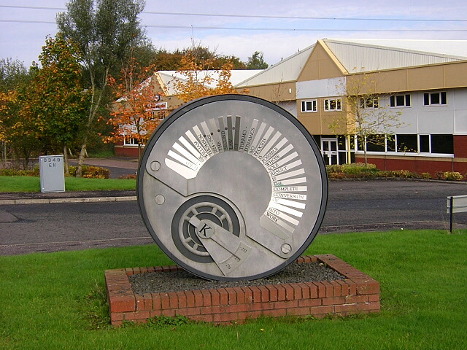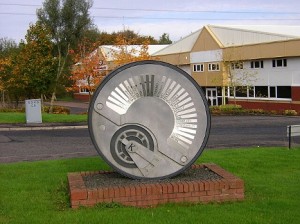Creation Corner
Science — does it confirm or contradict the Bible?

I have been involved in the Evolution vs. Creation debate for decades. So I know from experience that Evolutionists commonly argue that the evidence for evolution from science is overwhelming. Since Darwin wrote his Origins of Species back in 1859, evolutionists have been on a quest to prove his hypothesis scientifically correct. As a result, many “proofs” of Darwinian Evolution have been presented through the years – including missing links, moths, embryonic recapitulation, punctuated equilibrium, etc. The list goes on and on.
Students don’t always learn the failures of science
Anyone who attended a government school or an establishment of higher learning has been taught many of those “proofs” of Evolution as if they were well-established facts of science. The problem is that once these illusionary proofs were debunked as either hoaxes or disproved hypotheses, the people who were taught about them were not taught otherwise. Indeed, most of the same institutions that taught about these hoaxes censor or bury the contradicting evidence. Worse, these “proofs” stay in textbooks well after they are debunked, thus falsely influencing a multitude of trusting students. Whether these institutions do this based on ideology or ignorance is a topic worth discussing at another time. The point here is that those who were taught about these missing links and proofs go on believing that the Evolution is well substantiated.
A prime example is Piltdown Man, who was discovered by Charles Dawson in 1912. For 40 years this missing link between apes and humans was taught in schools, lectured in academic circles, and written about in journals of science. In 1953 Piltdown man was re-discovered – this time as an indefensible hoax. The sad truth is that during those 40 years, anyone exposed to this hoax thought that it represented proof of Evolution.
Science confirms the Bible
The purpose of this series is not to debunk these so-called “proofs.” There are a plethora of books, articles and posts that do just that. This series will go in another direction – a direction that I find to be fascinating and inspiring. I will connect some of the dots between verifiable discoveries of science and where they were mentioned in the Bible. I think you will be as amazed as I was when I realized that modern-day discoveries (most made in the 20th century) were in a well-read Book that was an ongoing work that began 3500 years ago and was completed 2000 years ago. Even more amazing is the fact that some of the legitimate “proofs” for Evolution are also proofs of Creationism. Hopefully, you will see a pattern – a pattern where the “proofs” that contradict Creationism are eventually proven to be hoaxes or just plain wrong, and that the “proofs” that also confirm Creationism are the only ones that are scientifically provable.
In the interest of keeping this article a reasonable length, I will start with the simplest. However, the more complex – such as the Space/Time Continuum, Astrophysics, and Cosmogony – are the most fascinating. I will be dealing with those in future articles.
Science and the Bible, round 1: Thermodynamics

Sculpture on Langlands Industrial Estate. Text: “Lord Kelvin Sir William Thomson The second law of thermo-dynamics No process is possible whose sole result is the complete conversion of heat into work”. Photo credit: Iain Thompson (Geograph.org.UK), CC BY-SA 2.0 Generic License
Thermodynamics may sound like a complicated science but it is relatively simple. It consists of four laws that deal with the study of energy within a system. The second law is the relevant one. The Second Law of Thermodynamics states that if no energy enters or leaves a living or working system, the state of energy will decay or will be less than that of the initial state. In other words, if you don’t add energy to a working system, the energy will decay or run out. Burning a pile of wood is a good example. The wood in the pile consists of ordered matter. Once heat (or energy) is applied in the form of fire, the wood in the pile begins to burn and in the process the wood decays. Eventually, if you don’t add more wood to the fire, the fire will burn out as well. When life ceases to take in energy, it dies or decays. It does not remain static. The order within a system maintains life. As that order goes to disorder, the system decays. The Second Law of Thermodynamics simply tells us that life systems that require energy go from an organized state to a disorganized state if the energy isn’t maintained. The process of going from organization to disorganization in life systems is commonly referred to as decay. Natural life systems include all bio and ecological systems.
The first two laws of Thermodynamics were first were credited to Sadi Carnot in 1824, elaborated upon by Rudolf Clausius and William Thomson in 1860, and credited as laws by Josiah Willard Gibbs in 1873. They have since been tested ad infinitum and found to be “Laws” – meaning they hold true in every instance in every way. However, this 19th century science was first written about in the Bible nearly 2000 years before Sadi Carnot’s revelation.
In the Book of Acts, chapter 8, verses 20-22, the Apostle Paul wrote:
For the creation was subjected to futility, not of its own will, but because of Him who subjected it, in hope that the creation itself also will be set free from its slavery to corruption into the freedom of the glory of the children of God. For we know that the whole creation groans and suffers the pains of childbirth together until now.
The Letter to the Romans is the one of the most intellectually challenging Books in the Bible. In these verses there are spiritual applications relating to the hope we have in God. But there is also a principle of science that is often overlooked. It is none other than the Second Law of Thermodynamics – and yes, it was written nearly 2000 years before “science” discovered it!!! Paul is clearly telling us that the creation (the entire universe) is condemned to decay. This is the polar opposite of Evolution, which tells us that things go from a state of disorder to a higher state of order – or they evolve. The verses above contradict that premises of Evolution, and so do the Laws of Thermodynamics. However, unlike Evolution, the Laws of Thermodynamics have been proved, tested, and found to be true. It is why the Laws of Thermodynamics are not referred to as a “theories” but as “laws.” and…they confirm what Paul stated in Romans nearly 2000 years ago.
Score One – Science confirms the Bible.
[subscribe2]
RoseAnn Salanitri is a published author and Acquisition Editor for the New Jersey Family Policy Council. She is a community activist who has founded the Sussex County Tea Party in her home state and launched a recall movement against Senator Robert Menendez. RoseAnn is also the founder of Veritas Christian Academy, as well as co-founder of Creation Science Alive, and a national creation science speaker.
-

 Civilization3 days ago
Civilization3 days agoWhy Europe Shouldn’t Be Upset at Trump’s Venezuelan Actions
-

 Executive4 days ago
Executive4 days agoHow Relaxed COVID-Era Rules Fueled Minnesota’s Biggest Scam
-

 Constitution5 days ago
Constitution5 days agoTrump, Canada, and the Constitutional Problem Beneath the Bridge
-

 Christianity Today3 days ago
Christianity Today3 days agoSurprising Revival: Gen Z Men & Highly Educated Lead Return to Religion
-

 Civilization4 days ago
Civilization4 days agoThe End of Purple States and Competitive Districts
-

 Executive3 days ago
Executive3 days agoWaste of the Day: Can You Hear Me Now?
-

 Executive4 days ago
Executive4 days agoWaste of the Day: States Spent Welfare in “Crazy Ways”
-

 Guest Columns5 days ago
Guest Columns5 days agoWhy We Need Lent












“They have since been tested ad infinitum and found to be “Laws” – meaning they hold true in every instance in every way.”
That is not what being a scientific law means. To quote conservapedia: “laws almost always have exceptions.” It describes a scientific law as a portion of a Scientific Theory which predicts the actions of objects under most circumstances and it goes on to explain how scientific laws are less useful than scientific theories since they offer no explanation of how the world works or why, just a prediction (given certain constraints are met). There is a nice list in the conservapedia article about a number of well recognized scientific laws and how they do not hold true in every instance in every way.
This is a bit of nitpicking of a well written article. Thanks for your insight.
“The Second Law of Thermodynamics states that if no energy enters or leaves a living or working system, the state of energy will decay or will be less than that of the initial state.”
No it doesn’t.
The dogged refusal of creationists to admit what the Second Law really says is one of the most irritating things about the whole “debate” (which among scientists ended decades before Darwin was born – evolution happens.)
This is the Second Law of thermodynamics:
The total entropy of an isolated system cannot decrease.
It can also be expressed as:
Heat will never flow spontaneously from a cooler body to a hotter one.
There is nothing in it about decay, about disorder, about death, about disorganisation or any of the other things that creationists habitually attribute to it. You say that it contradicts evolution? Of course it doesn’t. Not even close.
Firstly, even if Earth was an isolated system there is nothing in the Second Law that prohibits a local decrease in entropy as long as it is balanced by an equal or greater increase elsewhere in the system. This happens every time you eat; entropy decreases locally in your body – you build up a reserve of energy available for work (i.e. reduce entropy,) mostly in the form of ATP, and this decrease is compensated for by an increase in entropy because the energy stored in the food is no longer available to do work (which is what entropy is – energy that is not available to do work.) See – no contradiction.
That’s irrelevant anyway, of course, because Earth is not an isolated system. The Sun is constantly pumping energy into the Earth system, at a rate of over 1.3kW/m2. That’s far more energy than is required to account for all the biological activity we see on this planet. In fact it’s many orders of magnitude more; to three significant figures all the Sun’s energy that Earth receives is radiated back out into space – unless you go to three decimal places the energy that powers this entire planet – its climate, its oceans, all life – isn’t even noticeable. To put it into perspective, Earth gets more energy from the Sun in one hour than the entire annual energy consumption of the human race.
The fact that creationists keep banging on about the Second Law just shows how devoid you are of real arguments against evolution.
Ah, but entropy always increases somewhere along the way in an irreversible process. Even in a cyclic process, if one step in that process is irreversible, entropy must increase somewhere. If not in the system, then in the surroundings.
RoseAnn might not have had a course in thermodynamics, but I did. That insight about entropy changes in a cyclic process, when one step is irreversible, came up on a test. (I was one of the few to answer it correctly; the professor had to remind everyone else that no system can gain or lose entropy in a cyclic process. But the surroundings were a different matter.) And entropy is a measure of disorder in any system (or its surroundings), is it not? Is not, then, “decay” an apt metaphor for entropy?
All this is relevant, not only to the gradual running-down nature of the universe, but to the very origin of life. Life is a highly ordered state. Death brings disorder. So the creation of life involved a process that brought order out of disorder— or in Greek, chaos. Irreversible processes do not bring order out of chaos. Which is how the Second Law came up: physicists looked into the idea of perpetual motion and had to give it up.
And without God, all spontaneous processes must be irreversible, or have at least one irreversible step.
“Ah, but entropy always increases somewhere along the way”
Correct.
“in an irreversible process.”
Not necessarily. The increasing entropy of the Sun, for example, is caused by it fusing hydrogen into helium. Helium can be fissioned back into hydrogen though. In practice the process doesn’t reverse in the Sun to any significant degree, but it certainly isn’t irreversible.
On the other hand no system operates with perfect efficiency, so a hypothetical system where subsystems alternate in decreasing their entropy at each other’s expense would over time suffer a net increase in entropy. The universe is indeed screwed in the long run. Can I recommend Death from the Skies by Phil Plait?
“And entropy is a measure of disorder in any system (or its surroundings), is it not?”
No. What’s more ordered – a litre of boiling water or a kilo of snowflakes? Which has higher entropy?
“Life is a highly ordered state.”
Again, not necessarily. What’s more ordered – a human body or a diamond? A chimp or a slab of graphite? A turnip or buckminsterfullerene? In every comparison, life wins on low entropy but loses badly on order.
“Death brings disorder.”
You’re obviously not a fan of either Tacitus (“They made a desert and called it peace”) or Judge Dredd (actually his rival Judge Death, who observed that all crimes were committed by the living* and, based on that, devised a novel crime reduction programme.)
Life is messy and disorganised. I’ll give you an example from Israel, seeing as you’ve been there. Which is more disorderly – the British Military Cemetry at Ramla, or the Artik Bar nightclub in Tel Aviv at 3am?
“physicists looked into the idea of perpetual motion and had to give it up.”
Actually I have a design for a perpetual motion machine that I think might work; it involves a ring made of glass tube, four magnets, a small quantity of ferrofluid, some water and a loop of buoyant beads. The problem is that it doesn’t actually do anything; the beads would just circle endlessly inside the tube.
*Although that’s not actually quite true. There was one murderer – I forget his name – whose severed head was used in an early galvanic muscle experiment. His facial contortions gave one of the audience a terminal heart attack, so he arguably killed his third victim while dead.
using your severed head analogy, Sigurd Eysteinsson was killed by the head of his enemy, Máel Brigte. Sigurd strapped Brigte’s head to his saddle, as he rode home, victorious. The head’s teeth grazed his thigh, the wound became infected and Sigurd died.
“the ‘proofs’ that contradict Creationism are eventually proven to be hoaxes or just plain wrong, and that the ‘proofs’ that also confirm Creationism are the only ones that are scientifically provable.”
You use the word “proof” a number of times in this article when talking about evolution. By doing so, you show that you are ignorant not only of evolutionary biology, but of the very foundations of science. In science we do not “prove” theories. We test them. There is no experiment or measurement that could ever establish a scientific theory with 100% certainty. The best we can ever do is formulate a theory, like the theory of evolution, that agrees with all known observations. It is always possible for a theory to be inconsistent with observations, and when this happens, the theory must be modified or discarded. Therefore, when you say that creationism is scientifically provable, you fundamentally misunderstand what scientists are trying to do.
“The Second Law of Thermodynamics states that if no energy enters or leaves a living or working system, the state of energy will decay or will be less than that of the initial state.”
Do you seriously believe that this is a correct formulation of the second law of thermodynamics? You have not even used the word entropy. Do you even know what this word means? The entropy of a system is a quantity with a precise definition. It is not some vague notion of decay or disorder. I don’t even know what it means to say that “state of energy will decay” from the initial state. Are you saying that the total energy of a system will always decrease? That’s not even true, let alone a correct formulation of the second law.
[…] the first article of this series, I argued that the concept of thermodynamics was first written about by the Apostle […]
Dubby…
It’s a shame you don’t have a donate button! I’d without a doubt donate to this fantastic blog! I suppose for now i’ll settle for bookmarking and adding your RSS feed to my Google account. I look forward to new updates and will share this blog with my …